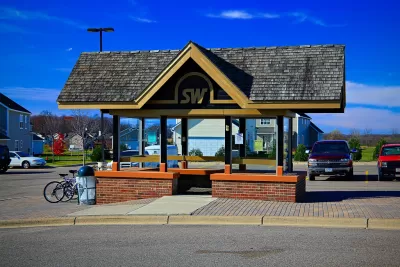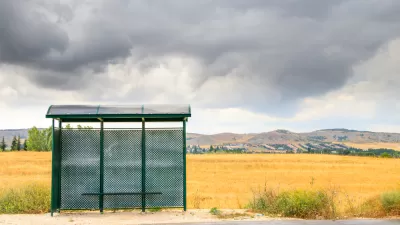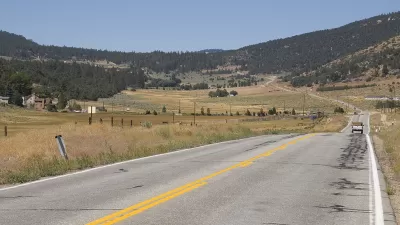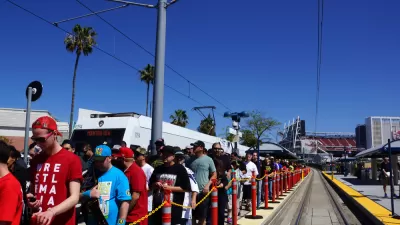Transit advocates were pleasantly surprised to hear senators address specific questions about the 80/20 split in transportation funding, transit operations, and rural transit needs.

Unlike most years, when public transit gets so overlooked in the federal surface transportation reauthorization bill that many have taken to calling the package "the highway bill," the "[s]enators in the committee charged with writing the public transit portion of this law—up for reauthorization this September—surprised us at a recent hearing with questions that got to the heart of the policies keeping U.S. public transit behind." Transportation for America's director Beth Osborne testified before the committee as senators asked questions aimed at understanding "the 80/20 split between highway and transit funding, the value of funding transit operations, and rural transit needs," writes Jenna Fortunati in the Transportation for America blog.
The federal Highway Trust Fund has, since 1982, allotted 80 percent of its funding to highways and 20 percent to public transportation. "The logic behind this was that since the Trust Fund’s funding came from the gas tax drivers pay at the pump, most of the funding should be spent on highways." In a bright spot for transit advocates, "[t]he three COVID-19 relief packages broke this tradition by providing operating support to transit agencies." When questioned about funding transit equally, Osborne told the senators "this is what we need to do to give people multiple modes of travel."
According to Transportation for America, funding transit operations in addition to maintenance and capital "will bring a return of more riders" by providing more frequent and reliable service. Osborne also emphasized the importance of funding rural transit, where many residents don't own cars. "[W]e forget that there are concentrations of people who live in distinct towns, and that services they need—like hospitals and schools—are moving farther away, consolidating into centers that serve entire regions. We need transit that can connect people to those regional hubs."
FULL STORY: Senators hone in on 80/20 split, transit operations funding at Banking hearing

Alabama: Trump Terminates Settlements for Black Communities Harmed By Raw Sewage
Trump deemed the landmark civil rights agreement “illegal DEI and environmental justice policy.”

Study: Maui’s Plan to Convert Vacation Rentals to Long-Term Housing Could Cause Nearly $1 Billion Economic Loss
The plan would reduce visitor accommodation by 25% resulting in 1,900 jobs lost.

Planetizen Federal Action Tracker
A weekly monitor of how Trump’s orders and actions are impacting planners and planning in America.

Wind Energy on the Rise Despite Federal Policy Reversal
The Trump administration is revoking federal support for renewable energy, but demand for new projects continues unabated.

Passengers Flock to Caltrain After Electrification
The new electric trains are running faster and more reliably, leading to strong ridership growth on the Bay Area rail system.

Texas Churches Rally Behind ‘Yes in God’s Back Yard’ Legislation
Religious leaders want the state to reduce zoning regulations to streamline leasing church-owned land to housing developers.
Urban Design for Planners 1: Software Tools
This six-course series explores essential urban design concepts using open source software and equips planners with the tools they need to participate fully in the urban design process.
Planning for Universal Design
Learn the tools for implementing Universal Design in planning regulations.
Caltrans
Smith Gee Studio
Institute for Housing and Urban Development Studies (IHS)
City of Grandview
Harvard GSD Executive Education
Toledo-Lucas County Plan Commissions
Salt Lake City
NYU Wagner Graduate School of Public Service





























